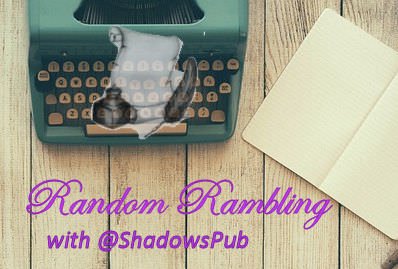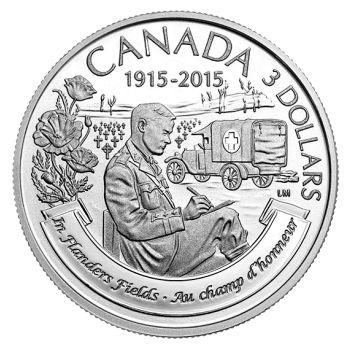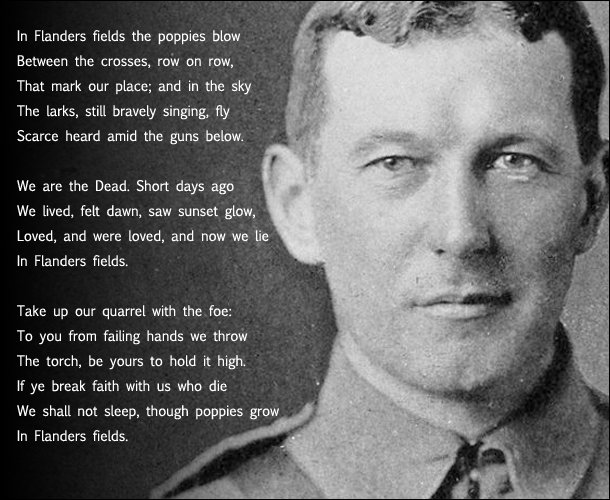In Flanders Fields Turns 103 - Repost

This morning I awoke to find a tweet on my tablet from the Royal Canadian Legion that today marks the 103rd anniversary of the writing of the poem In Flanders Fields by the Canadian surgeon Major John McCrae during WW1.
The poem continues to be one of the most enduring pieces of poetry from the WW1 era with its timeless message of the horror and loss that war brings.
I wrote the following post early in my time on the platform. I’m taking today to share its contents with you again along with a video of the late great Canadian performer Leonard Cohen reciting the peom. He did the tribute to mark the centennial of the poem in 2015.
The Story of In Flanders Fields
It was a mild spring day. The Canadian medical officer sat outside a medical tent. His six foot frame weary to the core. The persistent, invasive sounds of war all around him. While those sounds were present, there would be more casualties to treat.
His unit had been sent into the area less than a fortnight earlier. It was into this area the Germans had first unleashed deadly chlorine gas to add to the other horrors of warfare. As the troops scrambled up and away from the gas wafting into the trenches, they moved directly into the German line of fire. Over 4600 casualties would be sent to the aid station.
His mind was on the newly formed grave among the others with their neat crosses in the nearby graveyard.

Source
This grave was personal. It was the grave of his friend who had climbed out of a trench and been blown to pieces by a direct shell hit. The unit’s Chaplain not being present, this young officer conducted the Anglican service of committal from memory. He didn’t know if it was done right, he remembered it the best he could.
His eye was drawn to the field poppies the warm weather was causing to spring up around the graves. There is something about the soil where battle has taken place that nourishes those poppies. They are often the first signs of life after battle has churned up the earth.
With a weary sigh he picked up pen and paper to begin to write. Occasionally looking up at the graves and the poppies, and then went back to his writing.
He didn’t know another officer having a smoke break had been watching him as the young medical officer wrote intensely. After a time, the young officer lifted the paper he was writing on, studied it, then crumpled the paper and tossed it aside before getting up and walking slowly away.
Curious, the others officer picked up the paper and read it.

Source
It was a poem, one that immediately spoke to him. He followed after the young officer and convinced him to keep the poem, to send it for publication.
Major John McCrae
The Canadian medical officer was John McCrae from Guelph, Ontario. He was born on November 30, 1872.
McCrae had published poetry long before he went to war, having taken up an interest in writing poetry as a young boy. His mother loved poetry and would often read it to him and his two siblings from a very young age.
His father owned a mill but took more interest in the militia unit he had formed, being a former military man. Young John joined the cadet program at his High School. He joined his father’s militia unit as a bugler and later became a gunner.
His Early Adult Years
In 1888 John McCrae won a scholarship to the University of Toronto where he studied medicine. He graduated with honours and did his residency at Toronto General Hospital. He continued to be active in the militia and also as a writer, being published in several Canadian magazines.
In 1899 he won a fellowship in pathology at McGill University in Montreal. His career was interrupted later in 1899 when the Boer War in South Africa broke out, he found it the right thing to do to join the military. McCrae served in the artillery attaining the rank of Lieutenant and returned to Canada a year later.
In 1901 he became the resident assistant pathologist at the Montreal General Hospital. By July of 1914 he was editing the second edition of a pathology textbook he had co-authored with a colleague. When war was declared he was at a conference in Britain.
World War One Breaks Out
He immediately cabled a military buddy and offered his services. He was appointed as a surgeon to the 1st Brigade, Canadian Corps Artillery with the rank of Major. He returned to Canada for training. His unit sailed from England to France in February 1915.
On April 20th the Canadian division he was part of was sent in to relieve the French division at Ypres Salient. The French having been decimated by the brutal chlorine gas attacks. Having experienced combat in South Africa, 42 year old Major McCrae had no illusions of what war was.
In Flanders Fields
The poem, In Flanders Fields, which he wrote on May 3, 1915 would be first published in the British satirical magazine, Punch. It was widely read by members of the military and McCrae’s peom quickly went what we’d today call ‘viral’. It was a poem that people passed on not just in written form but also verbally.
Reprinted in publications around the world, the poem became widely popular. A popularity that continues to this day. It is often read at services of Remembrance.
In 1917 the Canadian government used the poem on billboards across the country to advertize the first offering of Victory Loan Bonds. It’s credited with helping to raise $400million - an astonishing number in those days.
Major McCrae’s Final Days
On January 24, 1918 McCrae was appointed as the consulting physician to the British armies. The first Canadian to attain this rank. He fell ill that evening, self-diagnosing himself with pneumonia. A condition no doubt made worse with the asthma he had suffered most of his life and gas attacks at Yprses Salient.
He was transferred to the military hospital at Wimeraux, France to be treated for double pneumonia and meningitis. He died in the early hours of January 28th. He was buried with full military honours.
Word went around the world of his death. In Canada tributes were printed in newspapers and memorial services were held across the country. A stain-glass window was dedicated to him at McGill University in Montreal. He had the inscription, “Pathologist, Poet, Soldier, Physician, a man among men”.
Closing Thoughts
As a youngster, I learn In Flanders Fields. It was required to commit it to memory. We were taught the poem represented the horror and sacrifice of war. That we were to always remember those who had gone before us to assure our freedom.
While the first two verses of the poem strike this tone, it’s the last verse that can be viewed from multiple perspectives. The peom was used to not only rally the troops but those on the home front. It was written and first received in the context of the allies still optimistic the war would not be long, nor would it be fought at the horrific cost it would be.
There are reports that McCrae’s time at Ypres Salient deeply changed the man. He had gone from a open and optimistic man to one of a darker, quieter man. It makes me wonder had he survived the war what his view on his own poem would have been at the end of the war.
War changes those who fight it in a way the rest of us can never imagine.


Until Next Time — Just Steem on









Haven't had coffee yet and brought a dang tear to my eye....your work with the Legion is amazing and the stories and poetry shared is the cream of the crop of the good and the best that Steemit can be.
I have to agree with @battleaxe and say your story read, brought tears to my eyes.
I so agree with this! but yet we still keep having them........something I will never understand.
Thank you for the reminder of what real people have gone through and a history lesson that the written word will always have deep meaning to a person taking the time to read it.
I have to agree with @battleaxe and say your story read, brought tears to my eyes.
I so agree with this! but yet we still keep having them........something I will never understand.
Thank you for the reminder of what real people have gone through and a history lesson that the written word will always have deep meaning to a person taking the time to read it.
I love this tribute and the sharing of such powerful poetry. And I simply adore Leonard Cohen. A moving post. An important post.
You got a 1.74% upvote from @postpromoter courtesy of @shadowspub!
Want to promote your posts too? Check out the Steem Bot Tracker website for more info. If you would like to support the development of @postpromoter and the bot tracker please vote for @yabapmatt for witness!